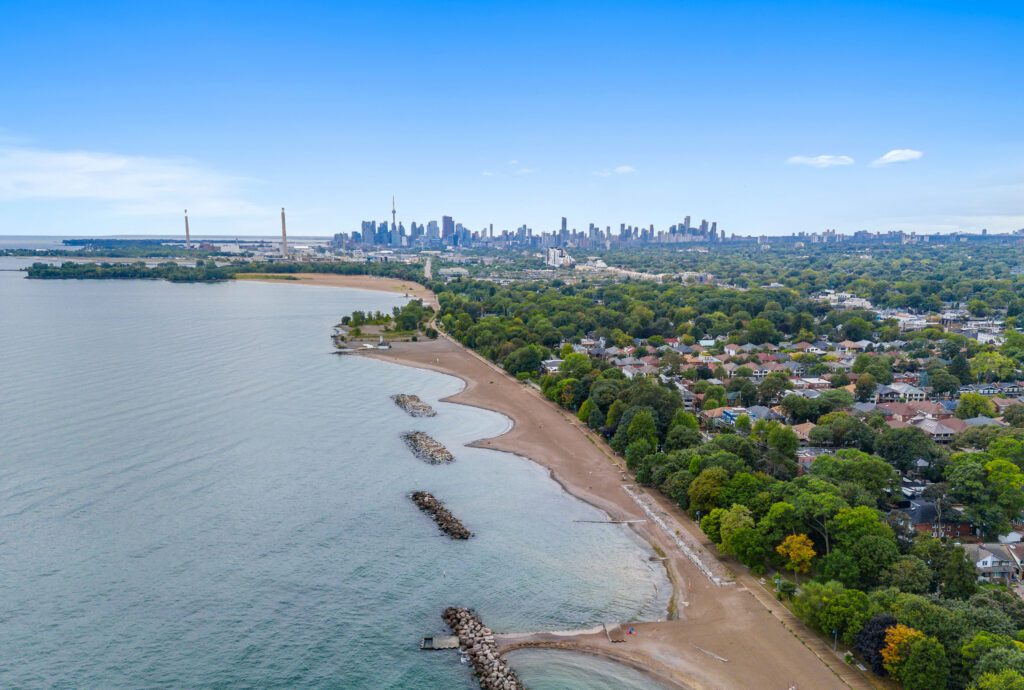You may have heard the term ‘Vacant Home Tax’ in the news over the past couple of years. In its latest effort to improve affordable housing, the City of Toronto will be imposing this new tax, next year, to prevent buyers from purchasing homes and leaving them to sit empty while many Torontonians struggle to find a place to live.
Curious about what this means for homeowners? Here’s what you need to know.
How much is the Vacant Home Tax?
The City of Toronto is implementing a 1% tax on homes that sit empty the majority of the year.
When will it come into effect?
The tax will come into effect in 2022, and is payable beginning in 2023.
To whom will the tax apply?
Toronto homeowners will need to declare the status of their home each year and will be subject to the vacant home tax should they choose to keep the home vacant. A unit will be considered vacant if it has been unoccupied for more than six months of the previous calendar year. Exemptions will also apply, which will include vacancy for development or renovations, the death of the owner or rental restrictions. The tax will not apply to a principal residence. Learn more about the exemptions.
Where else is this type of tax in place?
Vancouver implemented an Empty Homes Tax back in 2017 as a measure to tackle housing affordability in the city, and as of 2021, homes deemed empty have been subject to a 3% tax. Internationally, Melbourne has a vacant home tax, while Los Angeles and Hong Kong are considering implementing this tax, as well.
How will this impact Toronto housing?
The City has calculated that $55 to $66 million could be generated each year through the Vacant Home Tax, based on the assumption that 1% of Toronto’s homes are vacant. This revenue could be used to fund affordable housing in Toronto. Additionally, the hope is that this new tax will motivate owners to rent out their properties and create more housing options in the city.
So, will it work? That remains to be seen, although critics of this tax aren’t convinced that an additional tax of a mere 1% tax will deter buyers from allowing homes to sit empty.
What do you think of Toronto’s vacant home tax?
2023 Update:
In October, the Toronto City Council made a decision to raise the Vacant Home Tax (VHT) from one percent to three percent based on the assessed value of a property. This followed the Council’s previous move in September 2023 to implement a tiered Municipal Land Transfer Tax (MLTT) specifically targeting higher-end residential properties that include one or two single-family homes.
These initiatives were put in place as strategies to address Toronto’s financial deficit and to contribute towards alleviating the city’s housing shortage. However, it’s important to recognize that these tax measures, while necessary steps, may not be comprehensive solutions to enhance housing availability or affordability.
In essence, some think relying solely on these taxation methods can be seen as a temporary fix with limitations.
A couple of key points:
- Trickle-Down Impact of MLTT: Although the MLTT initially seems to affect only high-value homeowners, its impact extends to all homebuyers. High tax rates may discourage luxury property owners from selling, causing a chain reaction where move-up buyers lack options, and first-time buyers remain in rentals. This can lead to market stagnation, with fewer listings available.
- Rising Rent and Reduced Listings: Toronto saw a 4.1 percent year-over-year increase in rental costs and a 23.5 percent decline in listings in 2023. This situation exacerbates the barriers for renters entering the housing market.
- Gaps in the VHT: The current VHT does not cover certain types of properties, such as short-term rentals, properties listed for sale, or those undergoing renovations, limiting its effectiveness in bringing more homes into circulation.
- Toronto’s Real Estate Boom and Budget Shortfall: Despite the recent real estate boom in Toronto, the city faces a budget and housing shortfall. Some suggest that relying on taxes from homeowners isn’t solving these issues.
- Consideration of Tax Caps: To avoid overburdening homeowners, some suggest capping the VHT and MLTT based on historical property values to ensure predictability and fairness.
Overall, there are arguments that while addressing the housing crisis and budget issues in Toronto is necessary, heavily relying on taxation of the housing market may not be the most effective or equitable solution. Alternative approaches focusing on diversifying and increasing housing supply, along with fair taxation practices, are recommended for long-term success.



